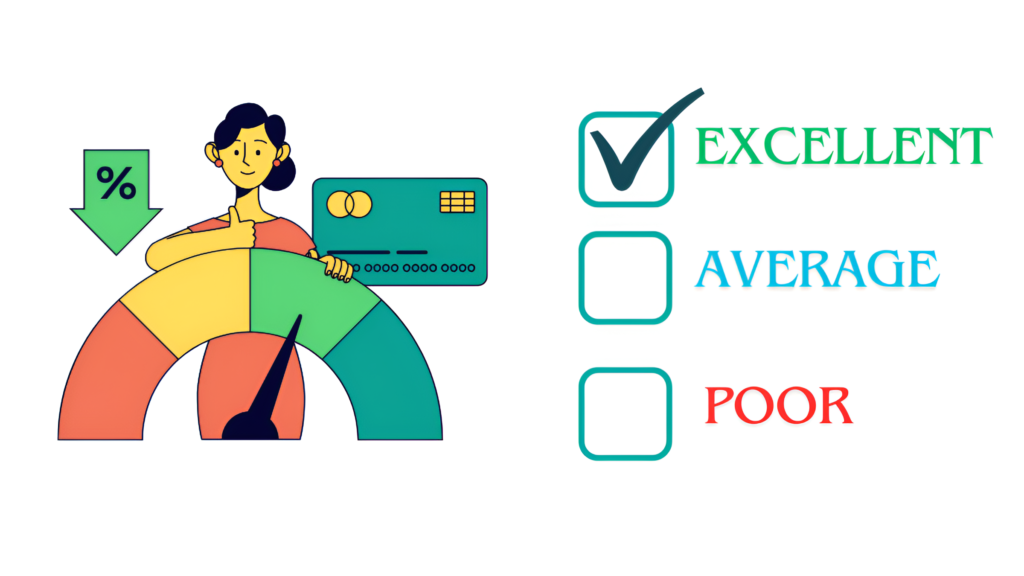Introduction
Did you know that an excellent credit score can save you thousands of dollars over your lifetime? Your credit score is more than just a number—it’s a financial passport that unlocks opportunities, savings, and peace of mind. Ranging from 300 to 850, a score of 750 or higher is typically considered excellent. This article dives into the benefits of an excellent credit score, actionable steps to achieve it, and answers to frequently asked questions.
Does student loan affect credit score? Yes! Student loans play a significant role in building or damaging your credit, depending on how they are managed. Understanding their impact can help you make informed financial decisions.
What is an Excellent Credit Score?
Credit scores are calculated using factors like payment history, credit utilization, and credit history length. While FICO® and VantageScore® models differ slightly, here’s a general breakdown:
Poor: 300–579
Fair: 580–669
Good: 670–739
Very Good: 740–799
Excellent: 800–850
An excellent credit score signals to lenders that you’re a low-risk borrower, paving the way for favorable financial terms.
Benefits of an Excellent Credit Score
Lower Interest Rates
Secure mortgages, auto loans, and credit cards with the lowest available rates. For example, a 1% difference on a 30-year mortgage could save over $30,000.Higher Credit Limits
Lenders trust you with larger lines of credit, improving your purchasing power and credit utilization ratio.Easier Approvals
Landlords, insurers, and employers often review credit scores. An excellent score simplifies renting, lowers insurance premiums, and boosts job prospects.Negotiation Leverage
Use your score to negotiate better terms, like waived fees or reduced APRs.Quick Utility Setups
Skip security deposits when setting up electricity, internet, or cell phone services.
How to Build and Maintain an Excellent Credit Score
Pay Bills On Time
Payment history contributes 35% of your FICO® score. Set up autopay or calendar reminders to avoid missed payments.Keep Credit Utilization Below 10%
High balances hurt your score. Aim to use less than 10% of your available credit.Avoid Opening Multiple Accounts Rapidly
Each hard inquiry can temporarily lower your score. Space out credit applications.Maintain a Diverse Credit Mix
A blend of credit cards, mortgages, and installment loans shows responsible management.Monitor Your Credit Report
Check reports annually via AnnualCreditReport.com. Dispute errors promptly.Keep Old Accounts Open
Closing old accounts shortens your credit history, potentially lowering your score.
Common Credit Score Myths Debunked
Myth 1: Checking your score lowers it.
Truth: Soft inquiries (like personal checks) don’t affect your score.Myth 2: Carrying a balance builds credit.
Truth: Paying in full saves interest and still boosts your score.Myth 3: Closing unused cards helps.
Truth: It reduces your available credit, raising utilization.Myth 4: Income affects your score.
Truth: Income isn’t factored in, but lenders consider debt-to-income ratios for loans.
Conclusion
An excellent credit score is a cornerstone of financial freedom. By understanding its benefits, adopting smart credit habits, and avoiding myths, you can unlock lower rates, better opportunities, and long-term savings. A high credit score can help you qualify for better mortgage terms, lower interest rates on loans, and higher credit limits. It also makes it easier to rent an apartment, secure favorable insurance rates, and even land certain jobs. Building and maintaining good credit requires consistent on-time payments, responsible credit utilization, and regular credit report monitoring. Start today by checking your credit report and setting actionable goals—your future self will thank you.
FAQs
Q: How long does it take to build an excellent score?
- It takes 6–12 months of responsible credit use to see improvement, but building to 750+ may take years.
Q: Can I fix my credit quickly?
- Disputing errors or paying down high balances can yield fast results, but consistent habits are key.
Q: Does having no debt mean a perfect score?
- No. You need active credit accounts to generate a score.
Q: How often should I check my credit?
- Review reports annually and monitor scores monthly via free services like Credit Karma.

Owner of Paisewaise
I’m a friendly finance expert who helps people manage money wisely. I explain budgeting, earning, and investing in a clear, easy-to-understand way.


I appreciate how your words captures your distinct character. It feels like we’re engaging in a meaningful conversation.
I value the effort you put into digging deep into and offering evidence for your arguments. It adds authenticity to your ideas.
I value the time and effort you put into making this information accessible.
Pingback: Should I Get a Credit Card as a Student? - Paisewaise
Pingback: Best Credit Cards for Students in 2025: Build Credit, Earn Cashback, and Start Smart - Paisewaise
Pingback: Can I Refinance My Bridgecrest Auto Loan? How to Lower Your Payments & Save Money - Paisewaise
Pingback: What Affects Auto Loan Rates the Most? (2025 Ultimate Guide) - Paisewaise
Pingback: How Do Credit Scores Impact Auto Loan Rates? Your Ultimate Guide to Saving Thousands on Car Financing - Paisewaise
Pingback: How to Refinance Your Student Loans in 2025